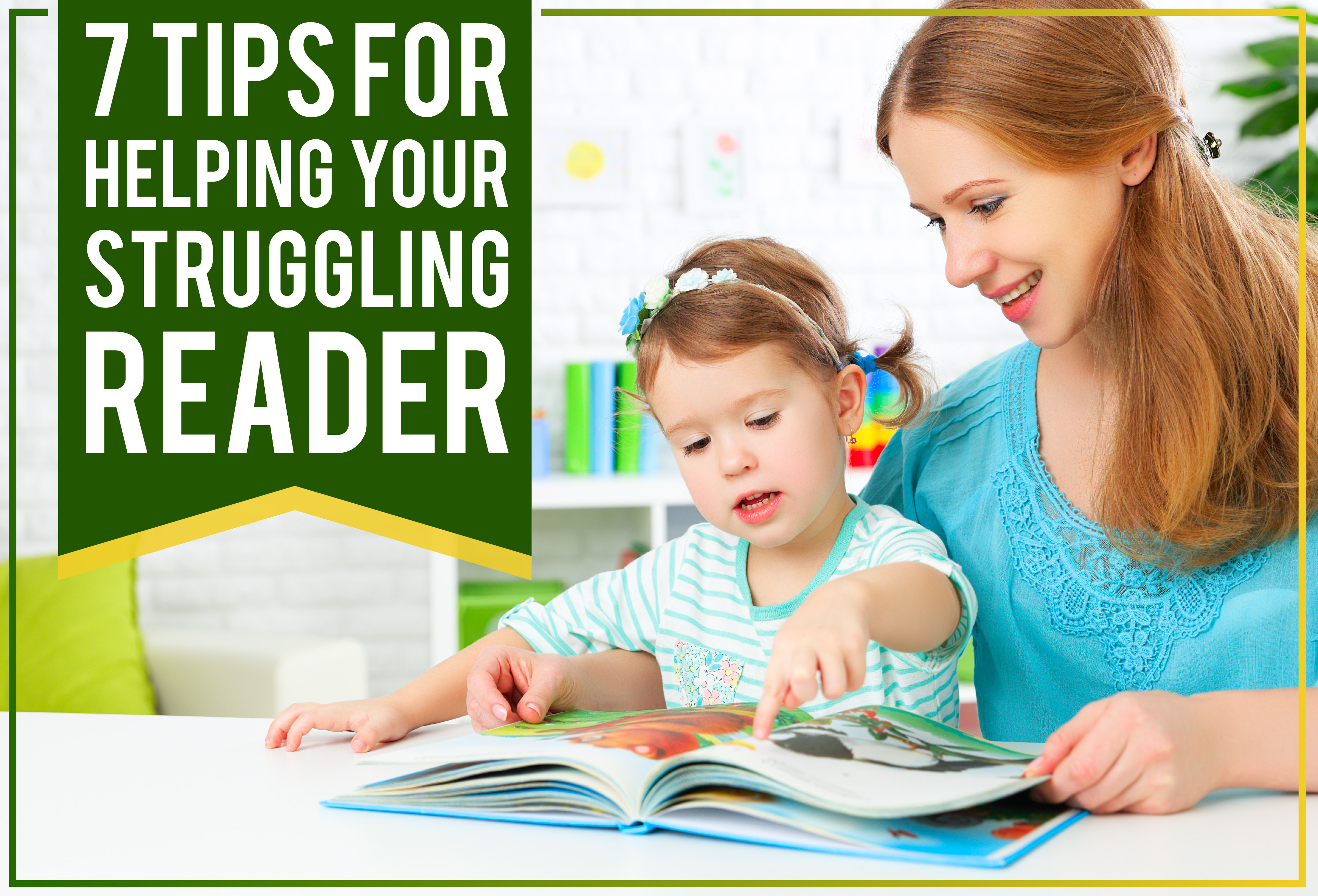7 Tips for Helping Your Struggling Reader
Building basic reading skills is crucial during the early childhood years. Children who learn to read at an early age tend to become more fluent readers, have greater general knowledge, and develop a richer vocabulary. They also tend to have a stronger attention span. However, many students struggle with learning to read, and parents are faced with the challenge of trying to help.
If you find yourself caught in a similar dilemma, know that you're not alone. Read on and learn some helpful strategies for helping your little one with reading.
Strengthen foundational skills
One of the reasons why some kids struggle with reading is that they don't have a strong foundation for “pre-reading” skills. These include proficiency in the areas of phonological awareness, letter recognition, print awareness, and motivation.
Before children can become strong readers, they should be able to hear the sounds that make up each word. Next, children need to be able to distinguish between the names and sounds of each letter in the alphabet. This helps them gain a better understanding of the letters that make up each word.
If your child is having trouble with these foundational pre-reading skills, it's important that you work on these areas before tackling higher-level reading comprehension or vocabulary skills.
Go slowly
Every child learns at a different pace. Be sure not to overwhelm your child by overloading them with too many skills at one time.
Consider incorporating games into your reading activities. You may also consider getting extra practice materials, such as workbooks or educational games, for independent playtime. These books are designed to help kids catch up on those foundational pre-reading skills as they give your struggling reader a head start.
Use multisensory activities
Reading is a complex task that requires input through multiple senses, so it's important to engage your child through both visual and auditory stimuli. You can help your child practice making connections between different parts of their brain at the same time. Activate visual learning as you talk about what your child reads or sees in the book. Then, incorporate a coordinating action. For example, if you're explaining to your child that “the letter D is for dog”, you can mimic a dog's behavior by running around or barking. This is good practice to help your little one learn kinesthetically.
Be patient
You may need to work on pre-reading skills for a while before you notice any improvement. Eventually, you can start helping your child grasp concepts involved in reading comprehension and vocabulary use.
Keep practicing
Just as with any new skill, practice is necessary when it comes to reading. The more your child reads, the better and more confident he or she will become. Eventually, your little one may be able to read anything!
Don't give up on your child's reading success, and keep practicing together. Surround children with a vast array of reading materials. You don’t just have to stick with books. Provide your child with magazines, comics, and even internet reading.
Encourage children to read anything that piques their interest
If your child is more inclined to read about science and outer space, make sure that they have access to books about those topics. If children enjoy storybooks, be sure to provide a variety of storybooks for reading time. It's also a great idea to let your little one tag along to the library or nearest bookstore. This way, your child can pick out their own reading materials.
Help children build their confidence in reading. Most importantly, recognize your child’s progress in reading by expressing how proud you are. Some kids don't feel motivated to keep practicing because they lack confidence. Some believe they can never be good at reading.
No matter how much difficulty your child faces, it's important that you let them know how proud you are of each step toward progress he or she makes. Celebrate small wins. You may even consider giving a small reward each time you see improvement. This is an excellent way to foster children’s self-esteem and encourage them to keep working until they've mastered each skill.
Not all kids are born to be fast learners, and that's okay. There are always several ways to help your child become a stronger reader!
At Mrs. Myers' Reading Room, we specialize in fun and interactive classes for developing readers. Find out how we can help your little one by visiting us or contacting us today.





